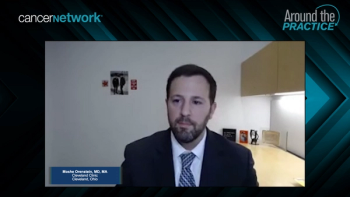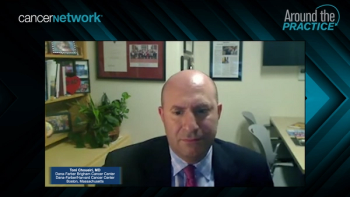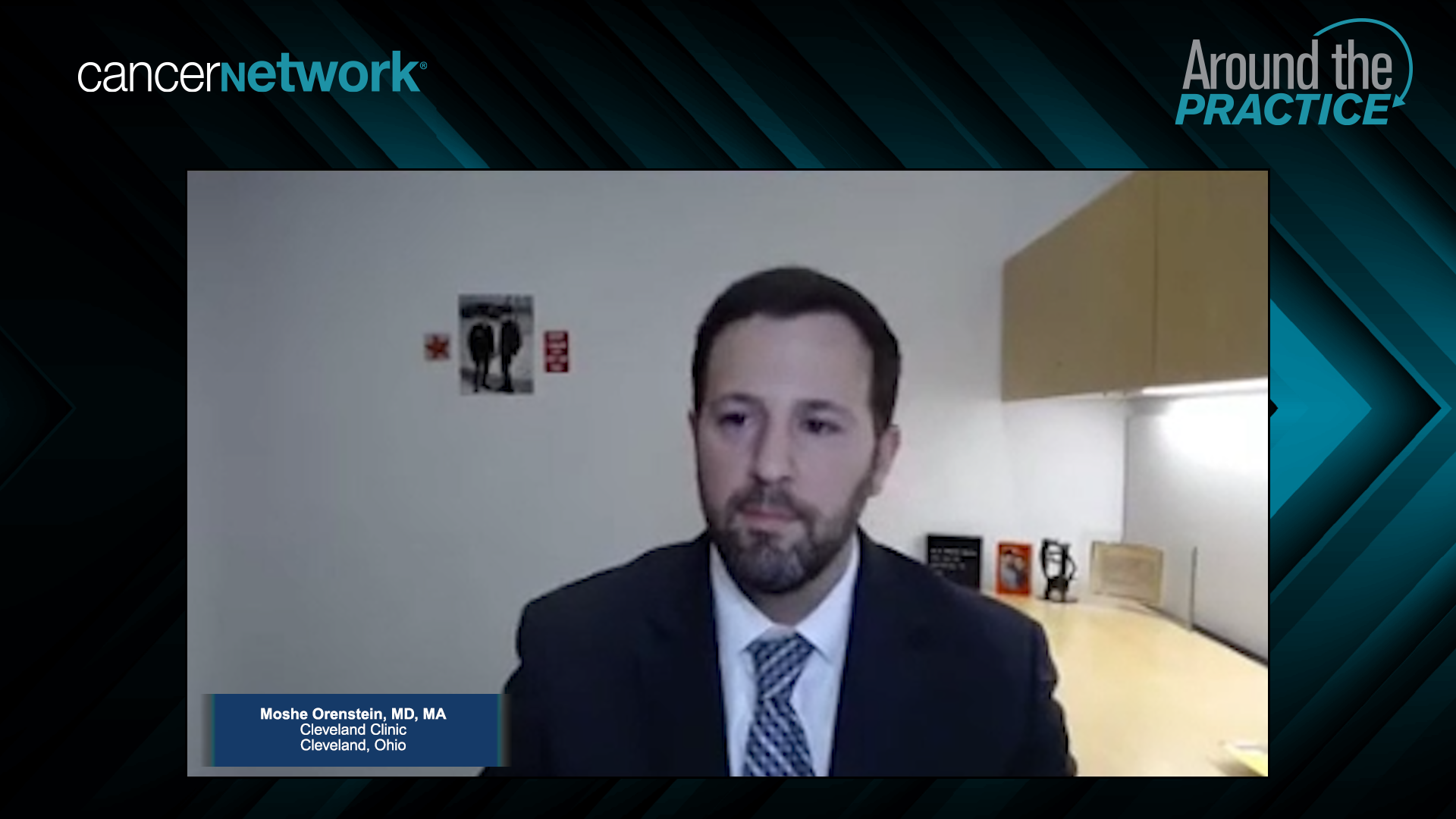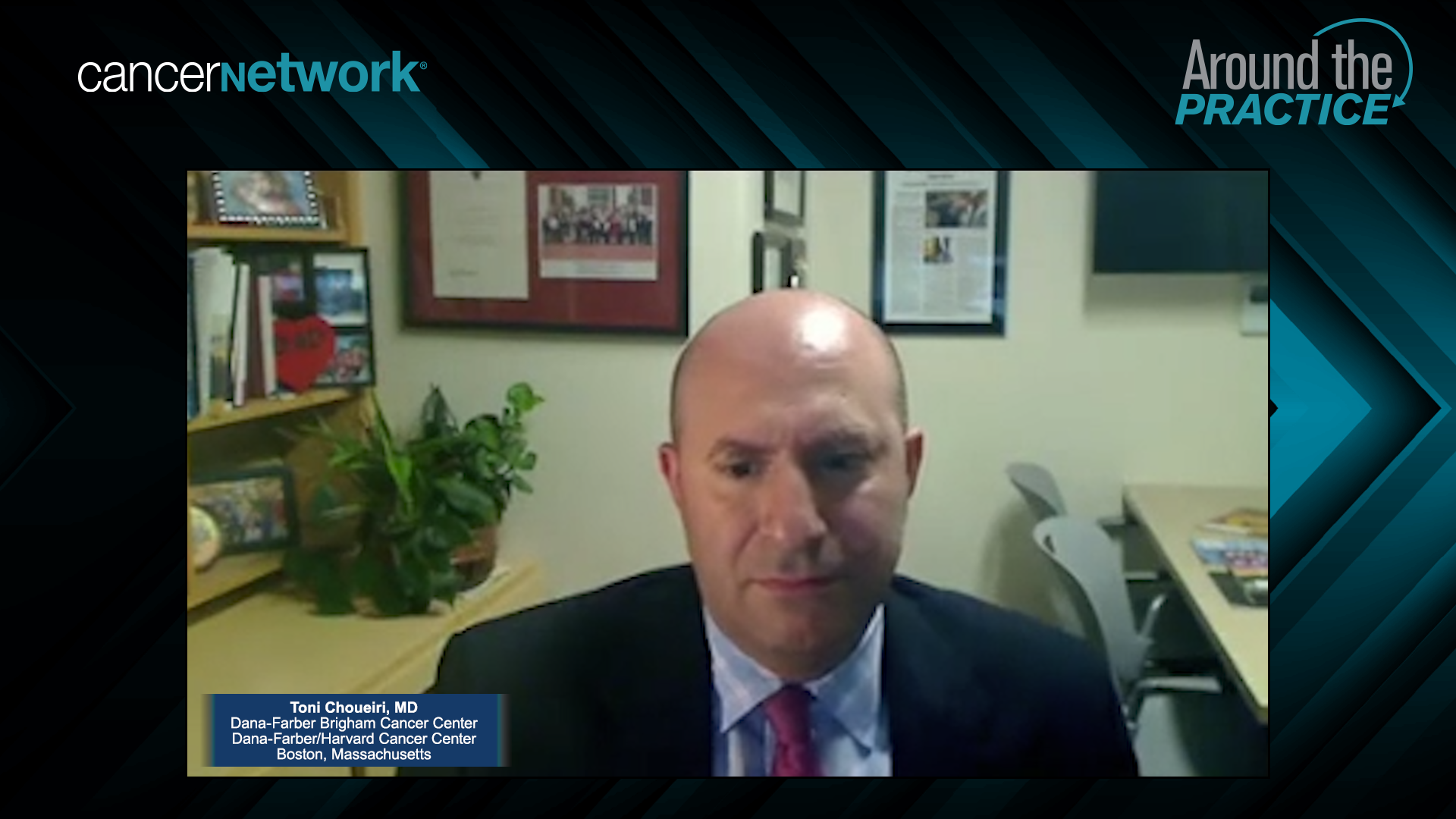
Kidney Cancer
Latest News
Latest Videos

CME Content
More News

The phase 2 MK-6482-004 trial found that belzutifan produced positive response data for patients with renal cell carcinoma and non–renal cell carcinoma neoplasms associated with von Hippel-Lindau disease.

The panel continues their conversation about the first patient case.

Toni Choueiri, MD, introduces the first patient case: a 65-year-old man with advanced-stage renal cell carcinoma.

Patients with advanced renal cell carcinoma who received first-line nivolumab and ipilimumab experienced an improved treatment-free survival vs sunitinib.

In a systemic review assessing the use of first-line post-protocol immunotherapy for patients with kidney cell carcinoma, investigators reported that use was low in randomized clinical trials among patients in the control group.

David A. Braun, MD, PhD continues the first-line clinical trial discussion with the addition of KEYNOTE-426 and CLEAR trial data.

Tian Zhang, MD, MHS, and Moshe Orenstein, MD, MA, recall data from two clinical trials for first-line treatment of advanced renal cell carcinoma: CheckMate-9ER and CheckMate-214.

Patients with intermediate-risk and high-risk renal cell carcinoma had a statistically significant improvement in disease-free survival after being treated with pembrolizumab, which was approved by the FDA.

CancerNetwork®sat down with John Burke, MD, to talk about the topline results in the KEYNOTE-564 trial, which examined the use of pembrolizumab in a population of patients with high-risk renal cell carcinoma.

Patients who developed brain metastases from renal cell carcinoma experienced promising intracranial activity after being treated with cabozantinib.

Despite the importance of incorporating palliative care into strategies for metastatic kidney cancer, little data exists in the space, highlighting a need for further research.

CancerNetwork®sat down with John Burke, MD, to discuss why treatment with pembrolizumab post-surgery may be a promising option for patients with high-risk renal cell carcinoma.

A select group of patients with metastatic renal cell carcinoma may benefit from cytoreductive nephrectomy followed by active surveillance as an alternative option to systemic therapy.

As lenvatinib plus pembrolizumab combination therapy results in a wide range of adverse effects, some which even led to discontinuation of the treatment, investigators suggest a proactive strategy for patients with advanced renal cell carcinoma.

Research from the 2021 International Kidney Cancer Symposium North America identified prognostic value in cell cycle proliferation and epithelial-mesenchymal transition pathway scores in clear cell renal cell carcinoma in predicting survival and recurrence.

A notable association has been identified between non-clear cell renal cell carcinoma and proliferative disease.

Brian I. Rini, MD, detailed the focus, goals, and key end points of a 3-arm, phase 3 trial comparing MK-1308A or belzutifan plus lenvatinib and pembrolizumab to the control of lenvatinib and pembrolizumab alone to treat patients with advanced clear cell renal cell carcinoma.

Patient with advanced renal cell carcinoma who were treated with nivolumab and ipilimumab experienced a long-term survival benefit that was superior to sunitinib.

Treatment with sunitinib resulted in improved efficacy results in the FIRSTMAPPP trial for patients with malignant pheochromocytoma and paraganglioma.

Patients with intermediate- and poor-risk metastatic renal cell carcinoma experienced promising responses after being treated with perioperative cabozantinib.

Those with advanced renal cell carcinoma whose disease was previously treated experienced long-lasting and robust overall survival following treatment with cabozantinib.

Patients with renal cell carcinoma experienced a better overall survival when treated with nivolumab plus cabozantinib regardless of whether or not they underwent a nephrectomy previously.

Patients with VHL-mutant and wild type clear cell renal cell carcinoma may have comparable clinical characteristics, although other genetic alterations may be at play.

A lack of understanding, communication, and more was expressed among both patients and caregivers regarding a subtype of kidney cancer.

Patients with advanced renal cell carcinoma experienced improvements in both progression-free and overall survival after being treated with first-line immunotherapy vs sunitinib, although the benefit is yet to be determined in those with favorable-risk disease.








































